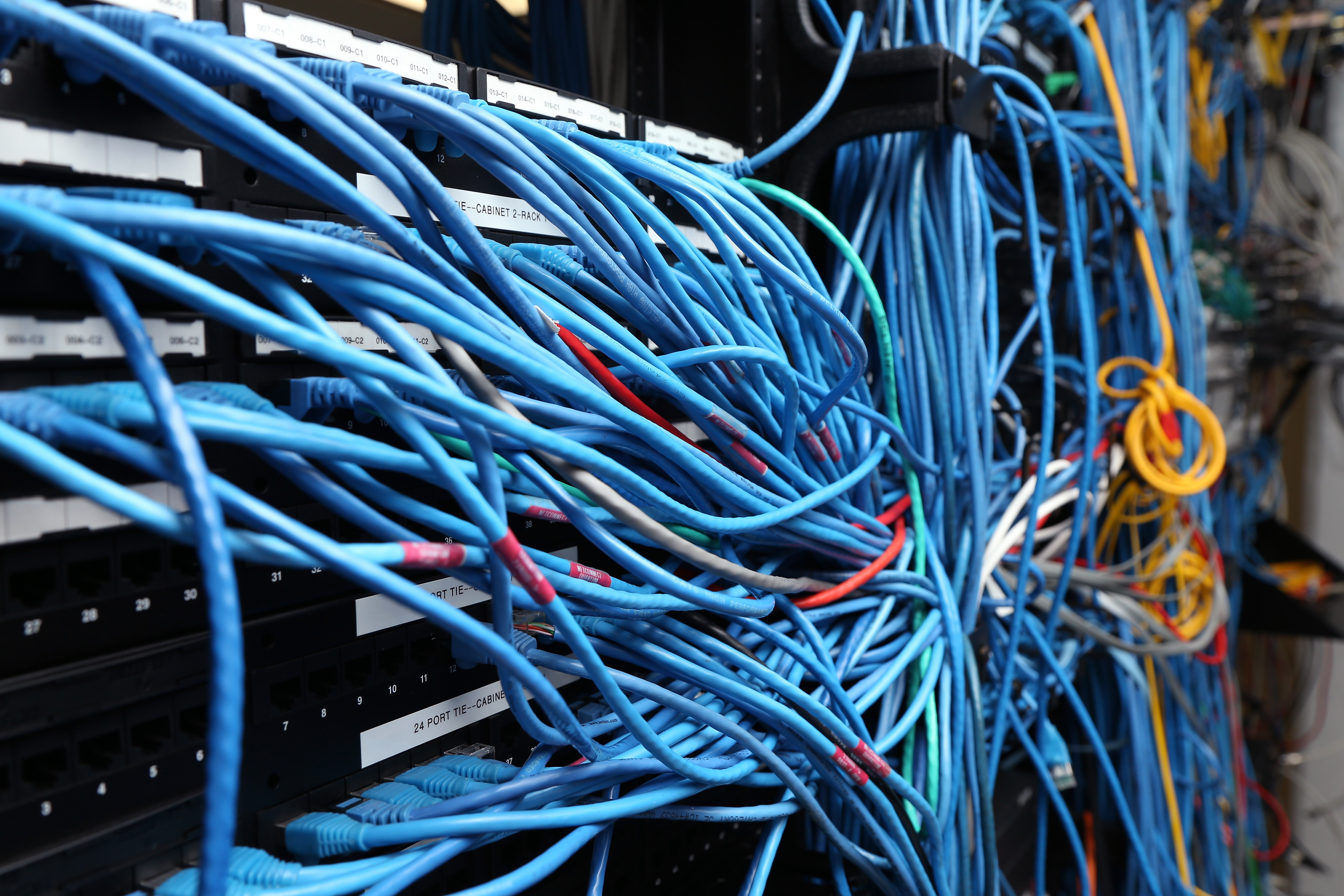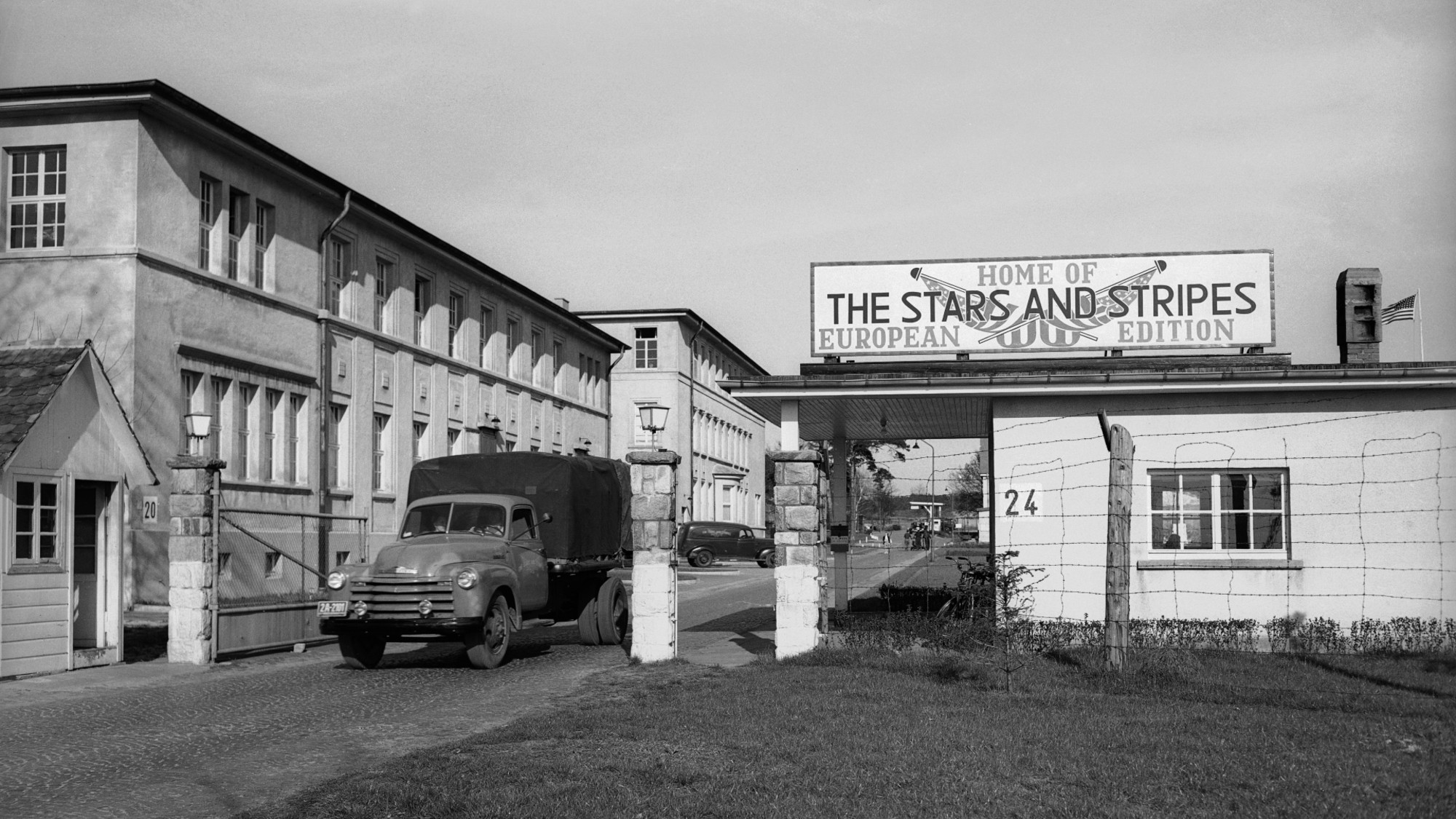America needs a public option for the internet
Private industry is strangling America's internet. The government needs to step in.


In the hardscrabble Texas hill country where Lyndon Johnson grew up, he was long remembered as the man who "brought the lights."
In a place where the water table is often 75 feet below ground, rural wives had to work like draft horses, hauling water day after day for drinking, cooking, and above all washing. So when LBJ, during his first term in Congress, badgered FDR into putting up a hydroelectric dam in his district, and then twisted enough arms at the Rural Electrification Administration so they would bend their rules about where new electric lines could be built, hill country Texans were pole-vaulted out of a brutally difficult medieval lifestyle. Suddenly they had electric refrigerators, pumps, and washing machines. It was miraculous.
Of course, blazing fast internet service today doesn't nearly match the importance of electricity in the late 1930s and early 1940s. Internet connectivity is, however, increasingly necessary to live a normal life — to participate in the culture, to stay in contact with friends and family, and especially to run any sort of business. And just like in Johnson's day, rural America is being left out, because private industry prizes profits over breadth and quality of service.
The Week
Escape your echo chamber. Get the facts behind the news, plus analysis from multiple perspectives.

Sign up for The Week's Free Newsletters
From our morning news briefing to a weekly Good News Newsletter, get the best of The Week delivered directly to your inbox.
From our morning news briefing to a weekly Good News Newsletter, get the best of The Week delivered directly to your inbox.
That's why the government must step in with anti-trust regulation and a public option for internet.
America invented the internet. But America's internet service is famously subpar. The latest report on internet infrastructure from Akami Technologies puts the U.S. 16th in the world in average speed, behind countries like South Korea, Norway, and Romania.
But that average disguises a lot of variation. Rural places, especially poor ones, are harder to connect than rich, urbanized ones, because there are fewer customers for each unit of infrastructure. Maine and Kentucky, which have big rural populations, are far behind smaller and denser places like D.C. and Delaware.
It's hard to connect remote towns. But it's not that hard. Unlike the days of rural electrification, no huge dams, coal-fired power plants, or high-voltage wires need be built; it's mostly a matter of laying fiber-optic trunk lines (many of which are already finished), and then building out individual connections to that pipeline. It costs real money, but in the hundreds of millions of dollars — as compared to about $14 billion for a single new nuclear power plant.
A free daily email with the biggest news stories of the day – and the best features from TheWeek.com
The relative ease of laying internet infrastructure can be seen in the fact that many cities and towns in rural locations have built their own municipal broadband service. Basically, with some help from the feds, several individual cities built world-class, publicly owned internet service providers for their citizens. These were so successful — Chattanooga's single-handedly sparked an economic boom — that they began growing past cities and into the hinterlands. Telecoms turned to GOP-controlled state governments for regulations to halt the growth of municipal networks, which they quickly received. The cities, in turn, asked the Federal Communications Commission for protection, but the FCC was forbidden from protecting these systems in a recent court decision.
Conservatives barked about how this was about protecting competition and free enterprise. But it's really about protecting monopolistic telecom behemoths — who are not remotely interested in providing low-margin, high-quality service out into the hinterlands — from competition. As a result, many rural businesses that now rely on that service may go out of business.
Incidentally, this is one of the big reasons that American internet is so crummy in the first place. Telecom companies at all levels of internet infrastructure constantly use their market power to gouge content providers and consumers, instead of competing on price and quality.
This leads directly to the first principle of internet reform: anti-trust action. Both by busting up the big telecom giants, and by forbidding the successor companies from engaging in anti-competitive action, the private market for internet will become broader, faster, and dramatically cheaper.
From the other direction, federal authorities should help states and cities set up municipal broadband networks wherever possible. This is perfectly within the reach of any medium-sized city, and would serve as an important source of permanent competition for large ones. Public broadband would be owned and operated by local government (or perhaps as a nonprofit cooperative, like the electrical co-ops that still supply power to many Americans), and paid for out of tax revenue.
For deep rural locations, public broadband is likely going to be the only realistic option for high-quality service. Chattanooga and other cities were already starting to push out into the hinterlands before telecoms stuck state regulators on them; with a bit of help they could surely make it much further. As we saw in Johnson's day, it will likely take some federal subsidies to get the remotest corners of the country wired up, but it's a small price to pay to get the whole nation properly online.
America's internet is a public utility. It ought to serve the needs of ordinary citizens, not huge corporations.
Ryan Cooper is a national correspondent at TheWeek.com. His work has appeared in the Washington Monthly, The New Republic, and the Washington Post.
-
 Why is the Pentagon taking over the military’s independent newspaper?
Why is the Pentagon taking over the military’s independent newspaper?Today’s Big Question Stars and Stripes is published by the Defense Department but is editorially independent
-
 How Mars influences Earth’s climate
How Mars influences Earth’s climateThe explainer A pull in the right direction
-
 ‘The science is clear’
‘The science is clear’Instant Opinion Opinion, comment and editorials of the day
